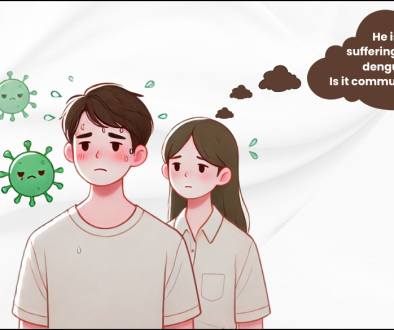Depression and Mental Health

Last updated on July 28th, 2024 at 12:10 pm
When someone goes through depression, they often feel sad, hopeless and empty. They may lose interest in activities they once loved, struggle with sleep patterns—either sleeping excessively or not at all and feel continuously tired with a lack of interest in food. In serious cases, individuals may also harm themselves.
Nowadays, depression is more common among people from various backgrounds and ages. The increase in depression cases highlights how societal factors, emotional well-being, and physical health as a whole affect individual mental health.
If you or someone you know is facing the problem of depression or having suicidal thoughts, here are the national helpline numbers which are available 24/7.
National helpline for suicide prevention – 1166
TPO Nepal – 9847386158
CMC Hotline – 16600185080
Patan Hospital Suicide Hotline – 9813476123
Mental Health Promotion & Suicide Prevention Center – 01- 4411264
Khabar Garaun – 1145
Find out the helpline numbers in your country: https://findahelpline.com/countries/np
Symptoms of Depression
- Feeling tired
- Disturbance in sleep
- Low self-worth
- Suicidal thought
- Lack of concentration
- Difficulty in making decision
- Changes in appetite and weight
- Difficulty in remembering things
- Loss of motivation and productivity
- Avoiding social activities
Causes of Depression
Depression can be caused by various reasons, some of them are:
Anxiety: It makes you feel uneasy, restless, fearful and tense. Ongoing stress, negative thoughts, and tension can cause anxiety which can lead to depression.
Trauma: Experiencing trauma like psychological, emotional, or physical trauma in childhood can cause depression later in life.
Relationship conflict: Having difficult relationships with close ones can affect individual mental health which can cause depression. Communicating with each other to solve the problem is necessary.
Major life changes: Significant life changes like retirement, moving to a new place or city, children leaving home, experiencing a major illness, financial problems, and relationship issues can disrupt daily schedule, which may lead to feelings of depression.
Financial issue: Issues like debt, unemployment or poverty can cause serious tension which can lead to depression.
Is Depression Curable?
Depression can be treated and managed effectively for many people, but it’s not always completely curable for everyone. Treatment options like therapy, medication, and lifestyle changes can help reduce symptoms and improve quality of life. With proper support and care, many individuals can experience significant relief from depression.
There are different ways to cope with depression and some of them are:
Seek professional help: Seek professional help from a counselor.
Self-care: Taking care of yourself can help manage depression by providing a sense of control, boosting self-esteem and improving overall well-being which can lead to a better mood.
Involve in different social activities: Take part in various social activities to engage yourself and build meaningful connections with others.
Meditation: Practicing meditation can make you feel more peaceful and mindful, which helps with depression.
Follow a healthy diet: Eating balanced meals with plenty of fruits, vegetables, whole grains, drinking plenty of water, and avoiding too much sugar and processed foods can help keep your mind healthy.
Music: Listening to peaceful music supports your mental health while staying away from loud noises helps you relax.
Exercise: Exercise helps people with depression by boosting mood, reducing anxiety, and improving sleep.
Peer support: Having friends and others to talk to can help with depression by giving understanding, kindness, and motivation, making you feel less alone and more connected.
Create a routine: A daily routine helps manage depression by making plans, encouraging healthy habits and giving a sense of control which reduces stress and supports self-care.
In conclusion, depression affects mental health deeply influencing how we feel, think, and act. Dealing with it includes therapy, working on oneself through meditation and leading a healthier lifestyle.
Raising awareness and minimizing judgment are essential for helping people with depression.


